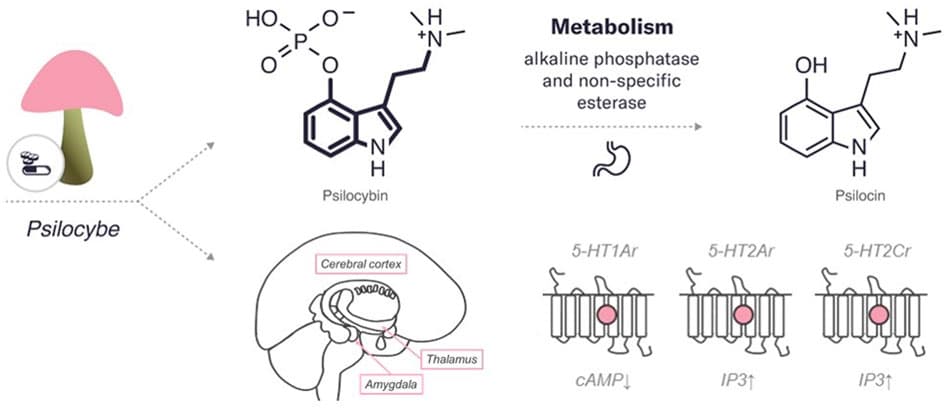Welcome to the Ayahuasca Experience blog, where we delve into the nuances of preparation for your journey. Today, we discuss the intimate topic of kissing before Ayahuasca – what does tradition say, and how might it affect your healing experience?
Understanding the Impact of Physical Intimacy on Ayahuasca Journey Prep
When preparing for an Ayahuasca retreat, participants are often advised to adhere to a specific diet and set of behavioral guidelines known as a dieta. This traditional preparation involves not only dietary restrictions but also often includes recommendations regarding physical intimacy and sexual activity. The impact of physical intimacy on one’s Ayahuasca journey is considered significant by many healers and facilitators.
Abstaining from sexual activities is commonly suggested for a period before, during, and sometimes after the retreat. The rationale behind this recommendation is multifaceted. Firstly, sexual energy is viewed as a powerful force that can be transformative when harnessed correctly. By abstaining, individuals may be able to redirect their sexual energies towards personal healing and spiritual growth.
Secondly, avoiding physical intimacy is thought to help individuals maintain a clear energy field. Ayahuasca is believed to work not just on the physical body but also within the energetic body, and interactions with others, especially intimate ones, can complicate this energy. Keeping the energy clear is said to allow for a more profound and undisturbed connection with the plant medicine, enabling deeper introspection and healing.
Moreover, the emotional complexities that can arise from intimate relationships might affect the emotional stability required when entering an Ayahuasca ceremony. As the plant medicine can elicit intense psychological and emotional responses, being as centered and grounded as possible is crucial. Engaging in sexual activity could potentially stir up emotions or create energetic ties that may distract from the healing process.
In addition, some believe that sexual abstinence helps to build up an internal energy reserve, which can be beneficial during the physically and emotionally demanding experience of an Ayahuasca ceremony. The theory is that preserving this energy allows for a more enduring and focused journey.
It’s also important to note that the intentions set for the Ayahuasca experience play a critical role; if one’s intentions involve personal purification or self-discovery, adhering to recommendations about physical intimacy becomes integral to aligning actions with those intentions.
In summary, while not universally mandated, the guidance to avoid physical intimacy leading up to an Ayahuasca experience is largely about conserving and clarifying one’s own energy to maximize the potential for healing and transformation during the retreat. As with all aspects of preparation, individuals should consider these recommendations within the context of their own needs, beliefs, and the advice of experienced facilitators or healers guiding their journey.
Calming Meditation | 1 hour handpan music | Malte Marten
Sun and Moon Meditation | 1 hour handpan & guitar music | Malte Marten & Luna Mando
Can I consume honey while following an ayahuasca diet?
When preparing for an ayahuasca retreat, it’s very common to follow a specific diet often referred to as the ayahuasca diet or dieta. This diet is believed to not only detoxify your body but also to help you connect more deeply with the ayahuasca experience.
The traditional ayahuasca dieta emphasizes the importance of eliminating certain foods that can potentially interact poorly with the MAOIs found in ayahuasca. These interactions can range from mild discomfort to serious health risks. The diet typically includes restrictions on processed foods, fermented products, excessive sugars, and sometimes even natural sweeteners.
Regarding honey, opinions vary. Some practitioners allow small amounts of honey because it is a natural product and does not contain the same levels of tyramine as other sweeteners, which is the main cause of concern when considering food safety with MAOIs. However, other guides or retreat centers might advise against it, advocating for a more stringent adherence to the traditional dietary guidelines.
If you’re attending a retreat, it’s always best to follow the specific guidelines provided by the facilitators. If they do not provide specific advice about honey, and you feel compelled to include it in your diet leading up to the retreat, the key would be to consume it in moderation.
Remember, the purpose of the dieta is twofold: to prepare your body for ayahuasca and to show respect to the spirit of the plant. Therefore, adhering as closely as possible to the suggested guidelines will not only potentially enhance your safety but also your overall experience during the retreat.
What substances have interactions with ayahuasca?
When considering an Ayahuasca Retreat and Healing experience, it’s crucial to be aware of the potential interactions that ayahuasca has with various substances. Ayahuasca contains MAOIs (Monoamine Oxidase Inhibitors), specifically harmine and harmaline, which can interact dangerously with a wide range of drugs and foods.
The most critical interactions to be aware of include:
1. SSRIs and other antidepressants: SSRIs (Selective Serotonin Reuptake Inhibitors), as well as SNRIs (Serotonin-Norepinephrine Reuptake Inhibitors) and MAOIs prescribed for depression, can lead to serotonin syndrome, a potentially life-threatening condition when combined with ayahuasca.
2. Psychiatric medications: Other mental health medications, such as antipsychotics, mood stabilizers, or any medication that affects neurotransmitter levels, should also be avoided due to risks of interaction and unpredictable effects on mental health conditions.
3. Recreational drugs: Substances like MDMA (ecstasy), cocaine, amphetamines, and others can pose severe risks because they interact with the same neurotransmitter pathways that ayahuasca affects.
4. Central nervous system suppressants: Drugs that depress the central nervous system, like alcohol, benzodiazepines, and opiates, should not be mixed with ayahuasca as they can potentiate sedative effects and respiratory depression.
5. Over-the-counter medications: Cold medicines, cough syrups, and allergy medications often contain ingredients that can elevate blood pressure or cause other harmful effects when combined with MAOIs found in ayahuasca.
6. Dietary supplements: Some supplements, including certain herbal remedies like St. John’s Wort or those containing tyramine, can create adverse reactions with ayahuasca.
7. Certain foods: Foods rich in tyramine—an amino acid found in aged cheese, cured meats, fermented products, and some alcoholic beverages—should be avoided as they can cause hypertensive episodes when MAO is inhibited.
8. Caffeine: Large amounts of caffeine may increase the risk of negative side effects during an ayahuasca ceremony.
Participants of an ayahuasca retreat are generally advised to adhere to a special diet, often called a dieta, avoiding many of the above substances, to minimize risks and ensure the safest possible experience. It’s essential to fully disclose all medications, drugs, and supplements you are taking to the facilitators of the retreat to avoid any dangerous interactions. Additionally, professional medical advice should always be sought before participating in an ayahuasca ceremony, especially for individuals with known health conditions or those taking medication.
How does ayahuasca alter your state of being?
Ayahuasca, a potent psychoactive brew, has been used for centuries in traditional Amazonian spiritual medicine. The core ingredients of Ayahuasca, usually the Banisteriopsis caapi vine and the Psychotria viridis leaf, combine to create a powerful synergistic effect. The active compound in P. viridis is dimethyltryptamine (DMT), while B. caapi contains monoamine oxidase inhibitors (MAOIs) that allow DMT to be orally active.
Upon ingesting Ayahuasca during a retreat, participants often experience profound alterations in their state of consciousness. This altered state typically lasts between 4 to 8 hours and can include various psychological and physical effects.
Visions and Hallucinations: Ayahuasca is well-known for inducing vivid and sometimes intense visual experiences or hallucinations. Participants may see intricate patterns, symbolic images, or embark on narrative visions that some interpret as spiritual journeys or revelations about the universe or their personal lives.
Emotional Release: Many report a deep emotional catharsis during an Ayahuasca ceremony, where suppressed feelings, memories, and traumas surface. It is not uncommon for individuals to experience intense joy, love, fear, or sorrow. This emotional release is often seen as a cleansing or healing process that can lead to significant personal insights and a sense of renewal.
Sense of Connection: An often-reported effect of Ayahuasca is a feeling of interconnectedness with nature, other beings, and the cosmos itself. This sense of unity can lead to a spiritual or mystical experience that some describe as life-changing.
Time Perception: Ayahuasca can significantly alter the perception of time, making minutes feel like hours or vice versa. This experience of ‘timelessness’ can contribute to the depth and intensity of the overall journey.
Physical Sensations: On the physical side, Ayahuasca can cause nausea, vomiting, diarrhea, chills, and tremors. These effects are often considered part of the cleansing process, releasing emotional and physical toxins from the body, known as «purging.»
During a retreat, these experiences are closely monitored by experienced facilitators or shamans, who provide guidance and support throughout the ceremony. The setting is designed to be safe and supportive, facilitating a space for introspection, healing, and transformation. Individuals often emerge from Ayahuasca retreats with new perspectives on personal issues, life purpose, and a deeper understanding of themselves and the world around them.
It’s crucial to note that the use of Ayahuasca is not without risks and should only be undertaken with careful consideration, preferably with experienced practitioners in a controlled environment. Health screenings and psychological evaluations are generally recommended before participating in an Ayahuasca retreat due to potential contraindications with certain medical conditions and medications.
How much is the cost of the Kentucky ayahuasca retreat?
The cost of a Kentucky ayahuasca retreat can vary widely depending on several factors, including the length of the retreat, the amenities offered, the reputation and experience of the facilitators, and the level of personal attention you might receive during the retreat. As of my last update, prices can range from a few hundred dollars to several thousand dollars for a multi-day experience.
Typical retreats in the United States that offer Ayahuasca ceremonies may include various activities such as preparation and integration sessions, accommodations, meals, and additional healing practices like yoga or meditation.
It’s important to note that the legality of Ayahuasca varies by location and it’s essential to research current laws and ensure that any retreat operating is doing so within the legal frameworks of their state or country. In the U.S., Ayahuasca usage is generally restricted, with exemptions for certain religious groups.
For the most accurate and up-to-date information on costs and offerings, it’s best to contact the retreat centers directly or visit their official websites.
When considering taking part in an ayahuasca retreat, the cost is not the only factor you should take into account. The safety, credentials, and ethical standing of the retreat facilitators are paramount. Always do thorough research and read reviews or testimonials from previous participants.
Frequent Questions
How does engaging in activities like kissing before participating in an ayahuasca ceremony at a retreat potentially affect the healing experience?
Engaging in activities like kissing before participating in an ayahuasca ceremony may introduce distractions or energies that could affect the purity of intentions and the individual’s emotional state. Ayahuasca traditions often recommend abstinence from various physical interactions to ensure a clear and focused healing experience, fostering personal introspection and spiritual connection.
Are there any specific guidelines or restrictions regarding intimate physical contact, such as kissing, prior to an ayahuasca ceremony for optimal spiritual and emotional healing?
Yes, many retreats advise abstaining from intimate physical contact, including kissing, before an ayahuasca ceremony. This is part of a dieta, which includes various physical and behavioral restrictions to purify the body and mind, enhance spiritual receptivity, and avoid energetic interference during the healing process.
What are the traditional shamanic perspectives on physical intimacy or kissing in the time leading up to an ayahuasca ceremony during a healing retreat?
From traditional shamanic perspectives, it is often advised to abstain from physical intimacy, including kissing, in the time leading up to an ayahuasca ceremony. This is because sexual energy is considered powerful and can affect the energy field of individuals preparing for the ceremony. Practitioners usually recommend observing a period of celibacy as part of a dietary and behavioral regimen known as dieta to help purify the body and mind, ensuring participants are grounded and focused for the spiritual journey they will undertake with ayahuasca.
In conclusion, it is vital to approach an Ayahuasca retreat with the utmost respect for the traditional guidelines and the ceremonial space. While human connection and affection are beautiful aspects of our existence, we must consider the spiritual and energetic sensitivity surrounding Ayahuasca healing. Engaging in intimate activities such as kissing before Ayahuasca ceremonies can introduce complex energies that might affect your journey and the collective experience. It is recommended that participants maintain a state of personal introspection and emotional purity to honor the plant spirit and their own healing process.
If you feel a strong connection with someone at the retreat, remember that this space is primarily for inner work, and there will be time after the ceremony to explore connections without impacting your sacred journey. By abstaining from kissing and other intimate activities, you ensure that your focus remains on your personal healing, allowing the Ayahuasca medicine to work within you unobstructed. Trust in the wisdom of the traditions that have curated these experiences for centuries, and embrace the opportunity for profound self-discovery and spiritual growth.
Embrace your Ayahuasca retreat with mindfulness and a heart open to the transformation that awaits, knowing that your commitment to the process holds the potential for profound healing and enlightenment.






